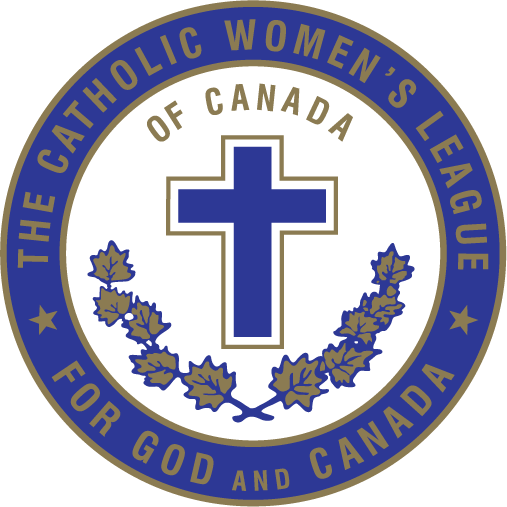Coreena Cole
Military Ordinariate Provincial Council President
2017 Annual Report
The annual report of Military Ordinariate Provincial Council identifies some of the challenges parish councils faced as well as some of the more rewarding victories. Following the perusal of executive committee reports and eight of 13 council reports, it was welcoming to know regardless of councils’ specific issues, i.e. aging members, recycled executives and small councils, members continued to prevail, supporting the chapels and community.
As in 2016, councils discussed or acted upon palliative care and physician assisted dying issues. Other priorities listed in order of importance included the refugee crisis, home care, limiting access to pornography, warning labels on food and drug products, youth mental health, Eating Well with Canada’s Food Guide, conscience rights of healthcare providers, rights of Indigenous offenders and Goods and Services Tax exemptions on child safety products. All information brought forward via standing committee chairpersons was discussed and acted on by setting time aside at a general meeting (75%) and arranging for a speaker on the topic (25%).
The treasurer’s annual report indicated charitable giving per standing committee focused on the standing committees of community life (64%), education and health (31%) and Christian family life (five percent).
The top three responses of where parish councils received information were The Canadian League, provincial council websites/newsletters and the national website. Other sources of information included national communiques, parish bulletins, local newspapers, Canadian Conference of Catholic Bishops and Catholic Organization for Life and Family websites, diocesan newsletters and Google searches.
Annual summaries of parish council activities were provided to members by 75% of councils reporting. These reports were provided in various ways, oral, written and by e-mail.
All parish councils reported the spiritual advisor was supportive of the council and that they met with the spiritual advisor monthly (five), weekly (two) and rarely (one).
Parish council presidents reported receiving the greatest assistance from the treasurer (50%), secretary (25%), current executive (25%) and personal mentor (25%) when assuming the role. Credit was also given to a former past president, immediate past president, life members and members at the provincial level. The biggest challenge presidents faced was recruiting. Other challenges listed by at least two councils were keeping members interested, member conflict, member negativity/criticism, not having a full slate of officers, resistance to new ideas and trying to please everyone. Public speaking, running meetings and technology were also concerns.
While presiding at meetings, all parish council presidents reported using the Constitution & Bylaws. As well, most of them reported using the council’s policy and procedure manual, Executive Handbook and the National Manual of Policy and Procedure. More than one-half reported using Robert’s Rules of Order and a couple of them reported using the Parliamentary Procedure manual. Two councils reported new policies being included in the council policy and procedure manual (expense policy, outreach policy and meeting protocol). Most found it beneficial to have a national theme and/or logo through which they could focus council activities.
One-half of parish councils reported having committees for: annual events such as teas, bazaars, etc.; fundraising; scholarships or bursaries; and social events. Three had a donations committee, two had a catering committee, and one had a visitation and policy committee.
Parish council presidents reported representing their members at: church functions (100%); special masses (87.5%); World Day of Prayer and sacramental events (75%); provincial meetings and conventions, fundraising dinners and events, and Remembrance Day services (62.5%); funerals and retreats (50%); conferences (37.5%); national convention, workshops and anniversaries (25%); and diocesan meetings or conventions, pro-life events and school ceremonies (12.5%).
Parish council presidents spoke, on behalf of their members on: council social events (87.5%); membership and local charitable projects (75%); palliative care, scholarships, bursaries and other awards (37.5%); mental health (25%); and euthanasia and refugees (12.5%).
Five presidents reported the following about their term or council:
• “A great two year term! I have always said that ‘leadership is not a position, it is action’. Based on that I feel my term was a gift from God for me.”
• “We are a small council but we do what we can in our community and for the League.”
• “We are a small and dedicated council, we take pride in everything we do for our Chapel.”
• “We are re-building our council now, the progress is slow but steady.”
• “We try very hard to make a difference in our military communities near and far, and we try to stay abreast of civilian CWL activities and participate when able. I see it as positive; it keeps us on our toes, better informed and educated.”
The year 2017 was an exciting year for councils as they were able to financially assist 14 members to attend the annual provincial convention in Comox, British Columbia and ten members to attend the annual national convention in Charlottetown, Prince Edward Island.
Although parish councils struggled, members vowed to continue. They committed to work on communication and mentoring. My term was an awesome ride representing Military Ordinariate Provincial Council at the national level. I look forward to my next role as past president.


